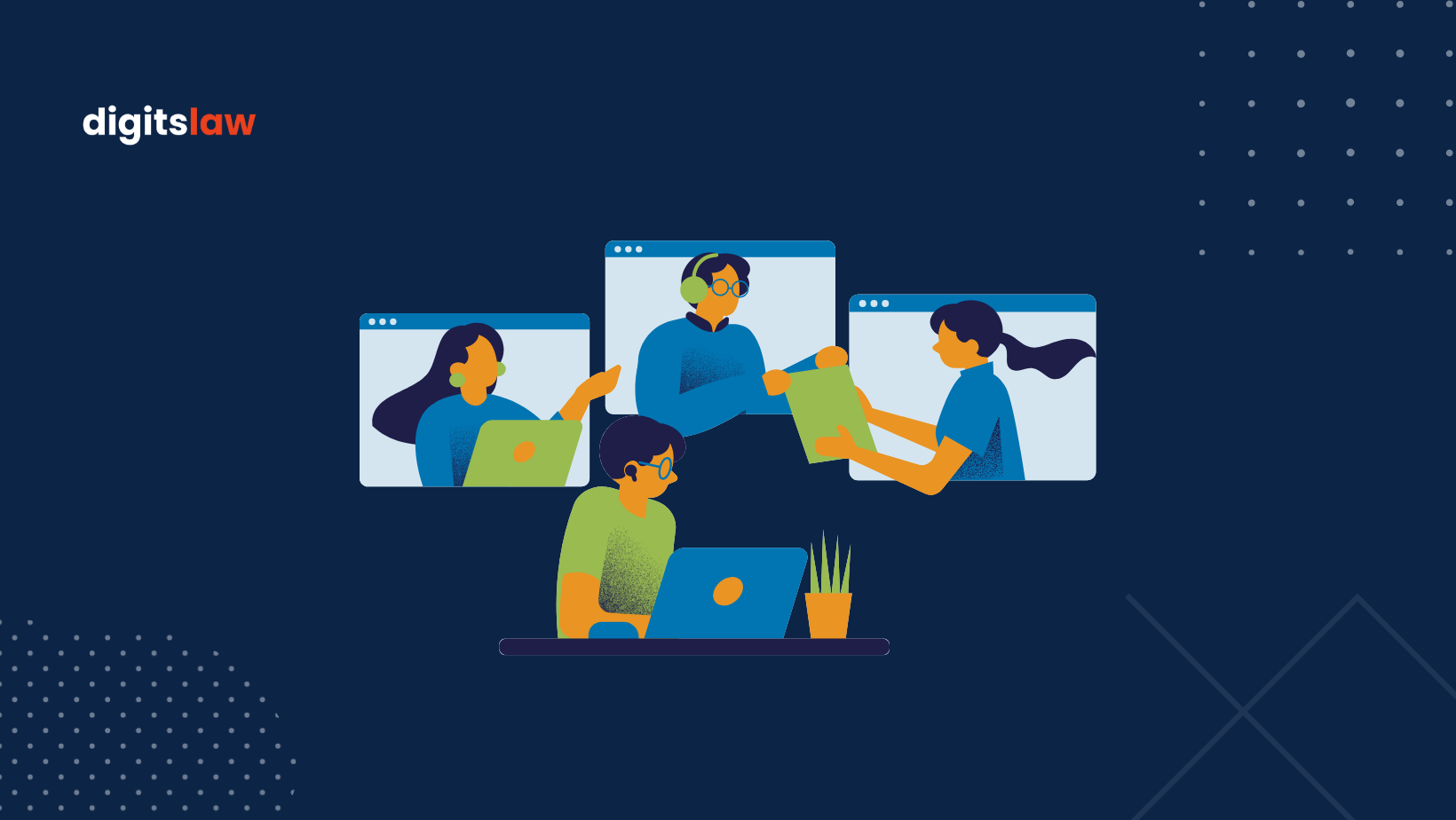In the legal world, effective client communication is crucial for law firms and legal professionals to maintain strong relationships, manage expectations, and provide exceptional legal services. The advent of legal technology tools has transformed the way lawyers communicate with their clients, making it more efficient, secure, and convenient. This blog post will explore how legal technology tools can be leveraged to enhance client communication and improve overall client satisfaction.

Gone are the days when face-to-face meetings were the only means of conducting business. Today, modern communication technology offers lawyers alternative ways to interact with clients. While there may be a natural resistance to change within law firms, with concerns that technology may diminish the personal touch, it is crucial to recognize that technology adoption does not have to compromise the human aspect of legal services. Here are a few ways you can use technology for client communication:
Live Chat
A law firm’s website serves as a touchpoint for potential clients seeking legal services. By implementing live chat functionality on your website, you can engage directly with prospects, answer their questions, and provide immediate assistance. Live chat is especially valuable as it allows for contactless communication while still delivering the information and support that clients need.
The Benefits of Live Chat for Client Communication
- Real-time Engagement: Live chat enables you to engage with website visitors in real time, fostering immediate communication and building a connection. By addressing their questions and concerns promptly, you provide a higher level of customer service, enhancing the chances of converting them into clients.
- Personalized Interaction: Live chat provides an opportunity for personalized interaction with prospective clients. You can tailor your responses to their specific needs and inquiries. This personalized touch enhances the client experience.
- Immediate Issue Resolution: With live chat, you can quickly understand and address prospects’ concerns, providing immediate solutions or guidance. This efficient issue resolution not only saves time for both parties but also showcases your firm’s expertise and responsiveness.
- Lead Generation and Conversion: Live chat serves as a powerful lead generation tool. By engaging with website visitors, you can identify potential clients, capture their contact information, and initiate the conversion process.
Video Conferencing
This has become an essential tool for businesses across various industries, including the legal sector. Video conferencing has revolutionized the way law firms communicate with clients. Whether it’s internal meetings, remote consultations, or ongoing client communication, videoconferencing offers convenience, efficiency, and flexibility.

Source –Nigelwright
Benefits of Video Conferencing
- Maintaining Personal Connection: Although video conferencing may not provide the same physical presence as an in-person meeting, it still allows for face-to-face interaction, fostering a personal connection between lawyers and clients.
- Cost and Time Savings: Video conferencing reduces travel expenses and time spent commuting for both clients and lawyers. By eliminating the need for in-person meetings, law firms can save valuable time and resources, allowing for increased productivity.
- Enhanced Collaboration: Video conferencing facilitates real-time collaboration between lawyers and clients. Through screen-sharing and document-sharing capabilities, lawyers can present information, review documents, and discuss legal matters seamlessly. This level of collaboration strengthens client engagement, as clients can actively participate in discussions and gain a deeper understanding of their cases.
- Convenience and Accessibility: Video conferencing eliminates the need for clients to travel to your office, providing them with the convenience of attending meetings from any location. This accessibility is particularly beneficial for clients who may be located far away or have limited mobility. By offering video conferencing options, law firms can accommodate clients’ scheduling constraints and make meetings more accessible, fostering stronger client relationships.
Chatbots
Chatbots have emerged as a powerful tool for businesses to provide instant responses, engage with website visitors, and capture leads. Law firms can leverage chatbots to enhance client interaction, answer inquiries outside of business hours, and ensure visitors receive timely information.
Benefits of Chatbots for Client Interaction
- 24/7 Availability: Unlike live chat support, chatbots operate tirelessly around the clock. This availability ensures that visitors who visit your website can receive immediate assistance and answers to their questions, even outside of regular business hours. This enhances the user experience and caters to the needs of potential clients in different time zones or with varying schedules.
- Scalability and Efficiency: Chatbots offer scalability and efficiency, allowing law firms to handle multiple inquiries simultaneously. Unlike human operators, chatbots can handle a large volume of conversations without compromising response time or quality.
- Personalization: Chatbots can be programmed to offer personalized responses based on visitor preferences and requirements. By tailoring the chatbot’s interactions to specific areas of practice or individual attorneys within the firm, law firms can provide a personalized experience and showcase their expertise in various legal domains.
- Lead Generation: Chatbots can play a crucial role in lead generation by capturing visitor contact information. By engaging visitors in conversation, chatbots can collect details such as names, email addresses, and phone numbers, enabling law firms to follow up and convert potential clients into leads. This automated lead simplifies the process of acquiring client information.
Online Portals
Finding a secure way to communicate with your clients throughout the case preparation process can be challenging. An online portal is a valuable tool for law firms to securely communicate, collaborate, and share documents with their clients. These portals offer compliant and password-protected virtual spaces where lawyers and clients can discuss case details, exchange sensitive information, and streamline communication.

Benefits of Online Portals for Client Collaboration
- Security: Online portals provide a secure environment for lawyers and clients to communicate and share sensitive documents. Unlike phone calls or email exchanges that can be vulnerable to interception or unauthorized access, online portals utilize encryption and other security measures to protect the confidentiality and integrity of client information.
- 24/7 Accessibility: Online portals provide lawyers and clients with 24/7 access to case-related information, regardless of their physical location or time zone. This accessibility allows for more flexible communication and collaboration, accommodating the busy schedules of both lawyers and clients.
- Compliance and Confidentiality: Law firms often handle sensitive and confidential information, and online portals offer compliance features, such as password protection and access controls, to ensure that only authorized individuals can access case-related information.
- Streamlined Communication: Online portals provide a centralized hub for lawyers and clients to communicate effectively and efficiently. Instead of relying on back-and-forth emails or phone calls, all case-related discussions can be organized within the portal, making it easy to track and reference past conversations. This streamlines communication, reduces the likelihood of miscommunication, and improves collaboration.
- Document Sharing and Collaboration: Online portals facilitate seamless document sharing and collaboration. Lawyers can upload documents to the portal, allowing clients to securely access and review them at their convenience. Additionally, online portals often offer features such as version control, commenting, and real-time editing, enabling lawyers and clients to collaborate efficiently.
Conclusion
Law firms have a range of technology tools at their disposal to enhance client communication. By adopting these technologies, law firms can meet the expectations of clients, who seek convenience, accessibility, and prompt responses.

However, the use of legal technology tools should complement the human touch that defines the legal profession. While these technologies enhance communication, they should not replace personalized client interactions or the expertise of lawyers. Striking the right balance between technology and personal engagement is key to delivering exceptional legal services and building long-term client relationships.
As law firms embrace legal technology tools, they position themselves as forward-thinking, accessible, and efficient, meeting the demands of today’s clients. By leveraging these tools, they can improve client communication and differentiate themselves from competitors.







